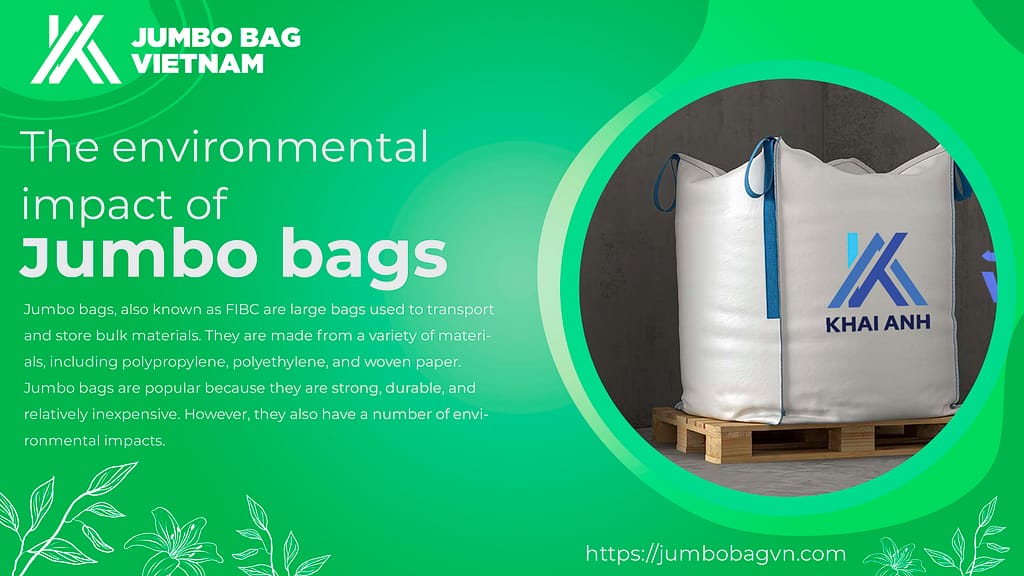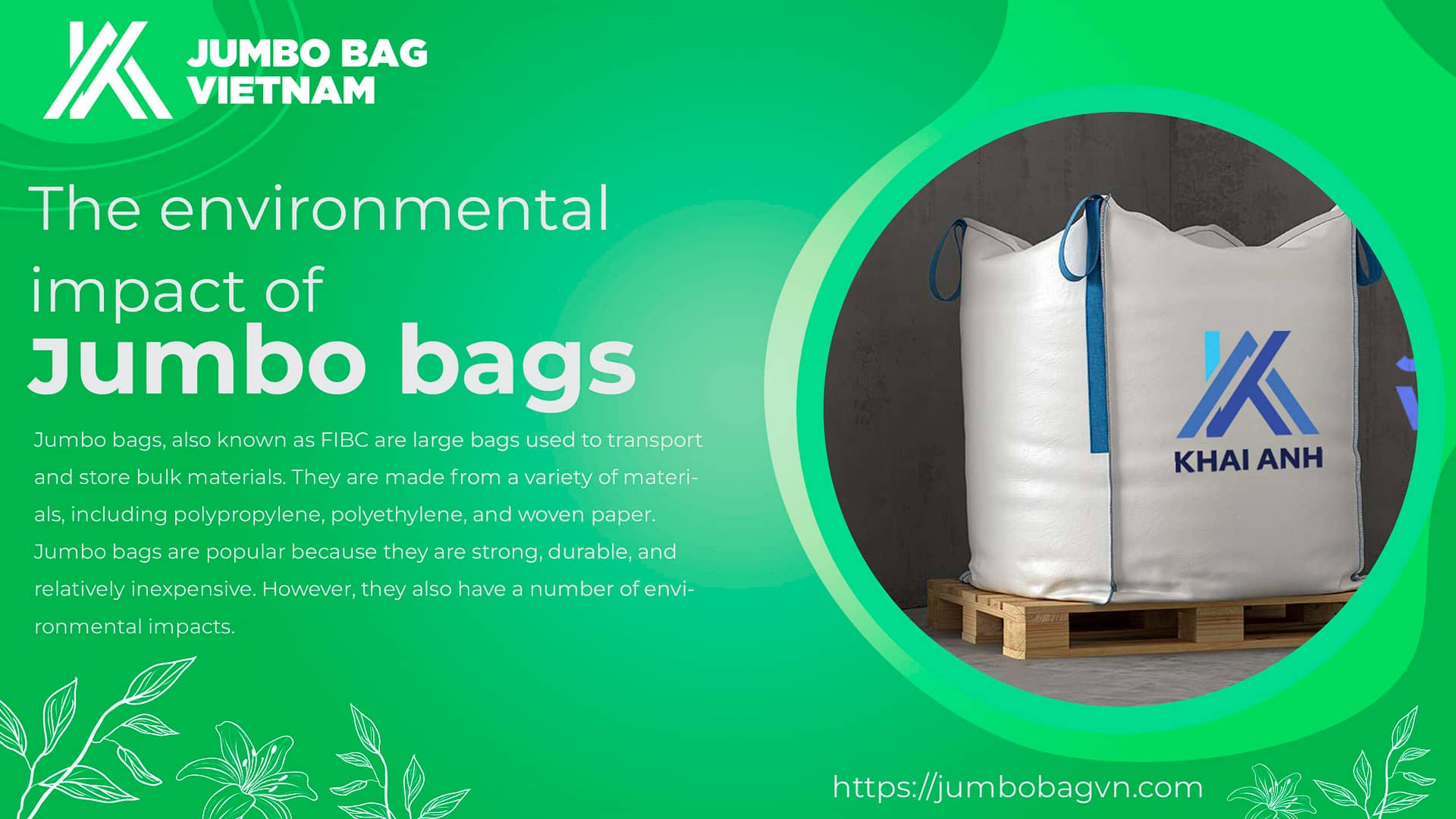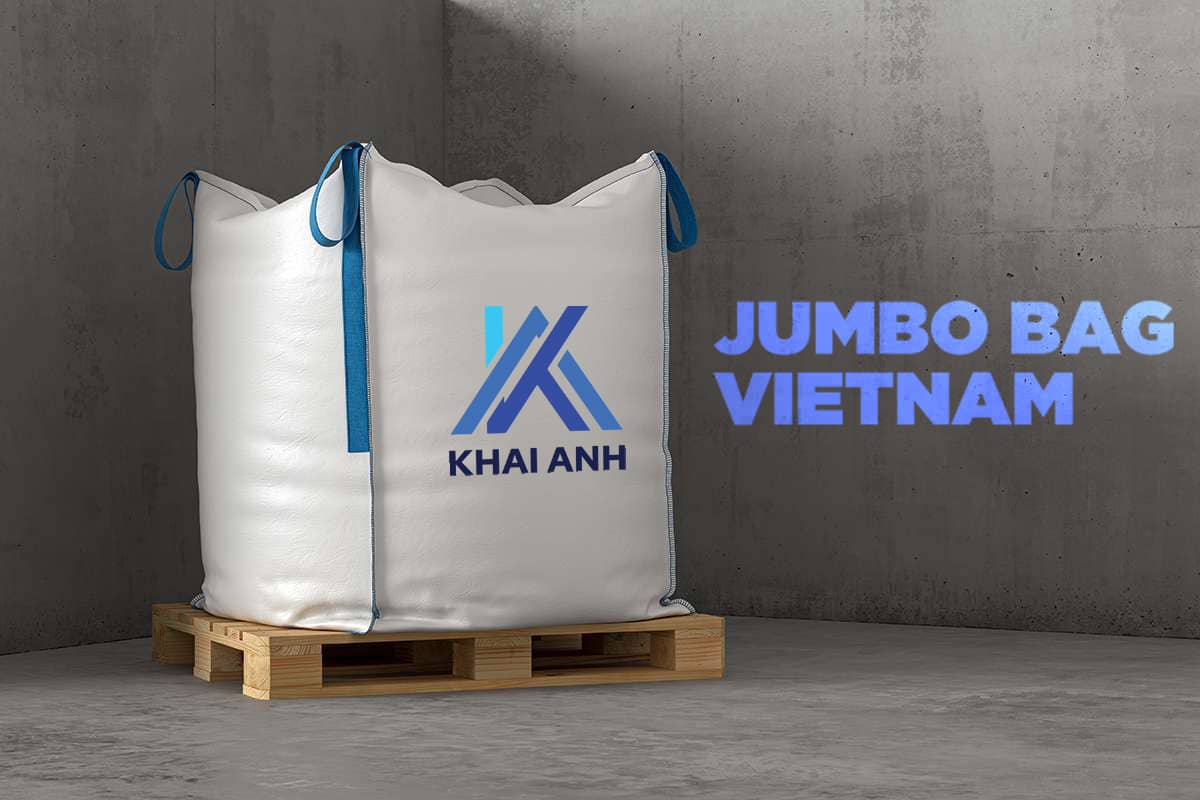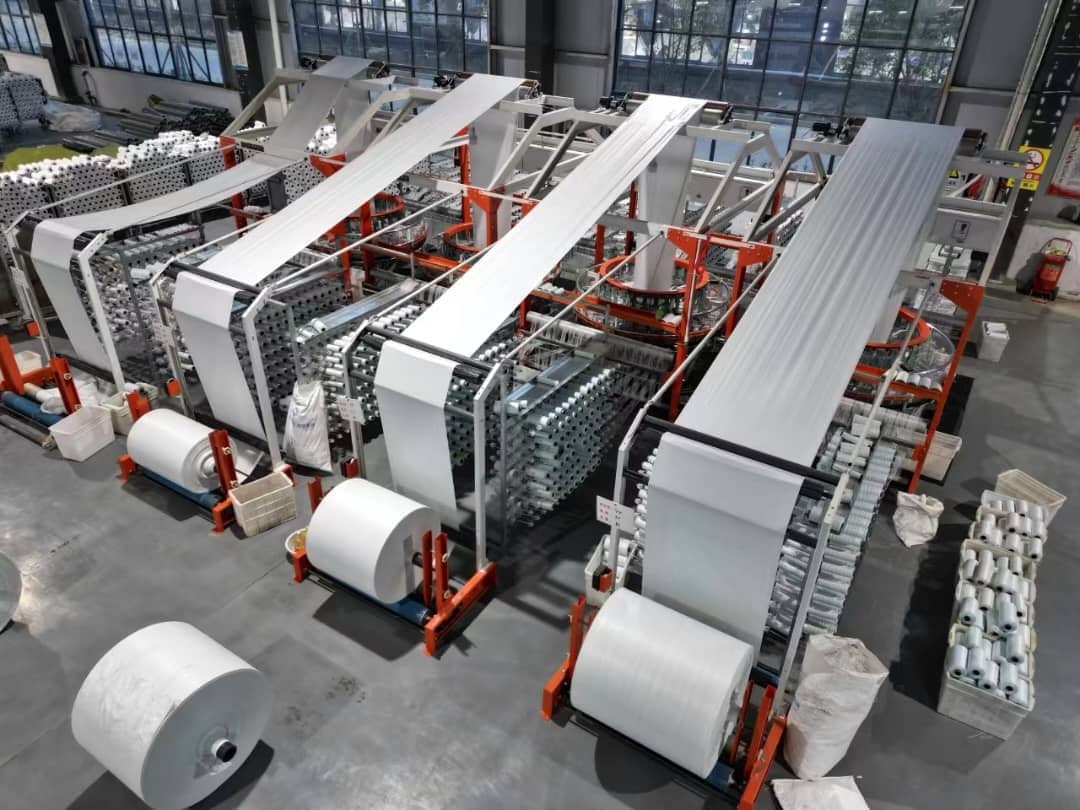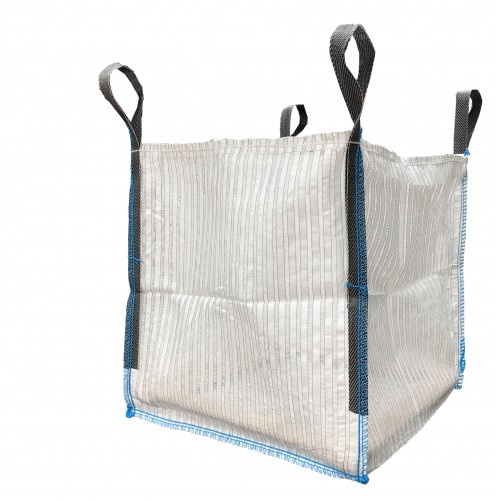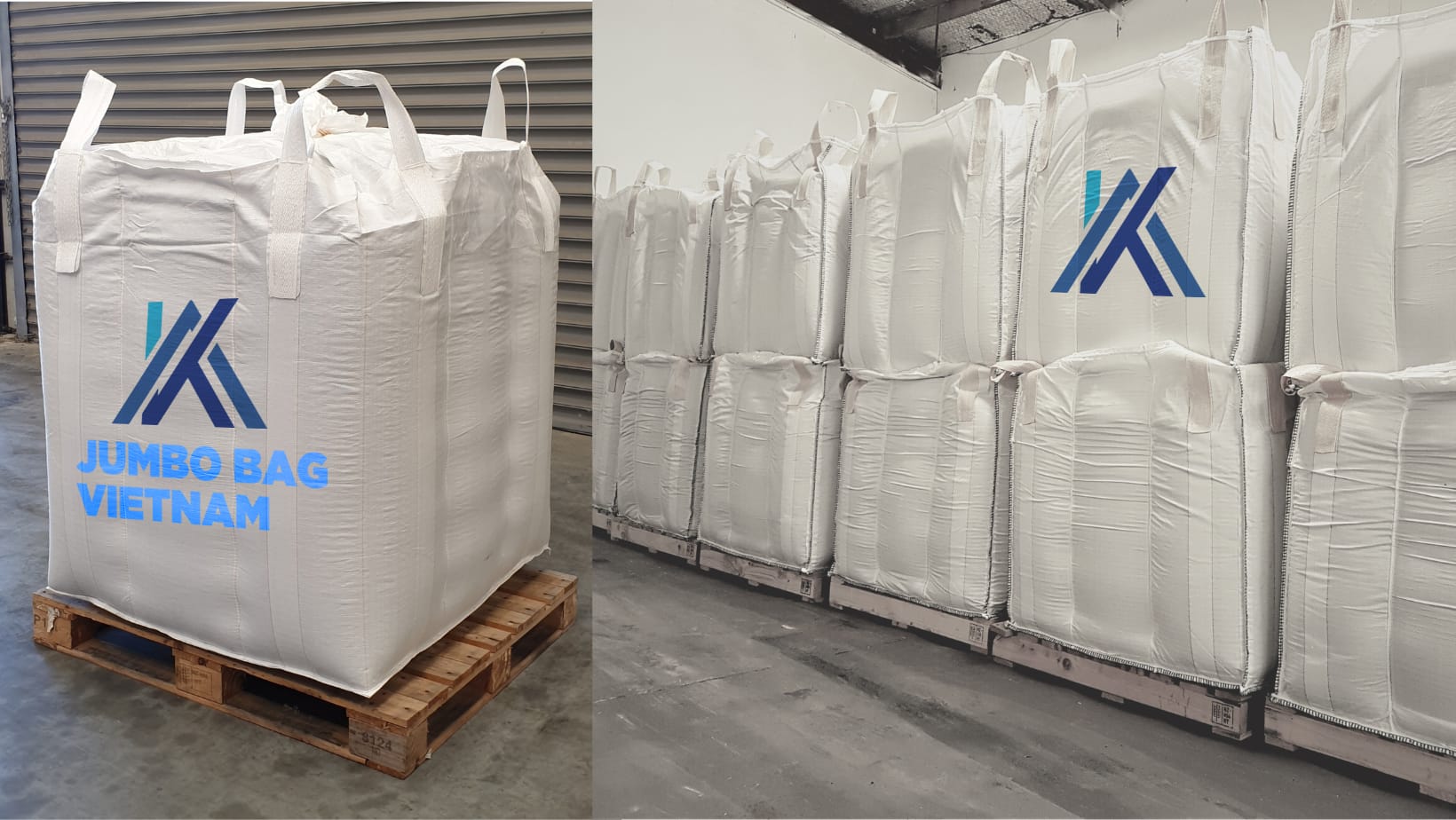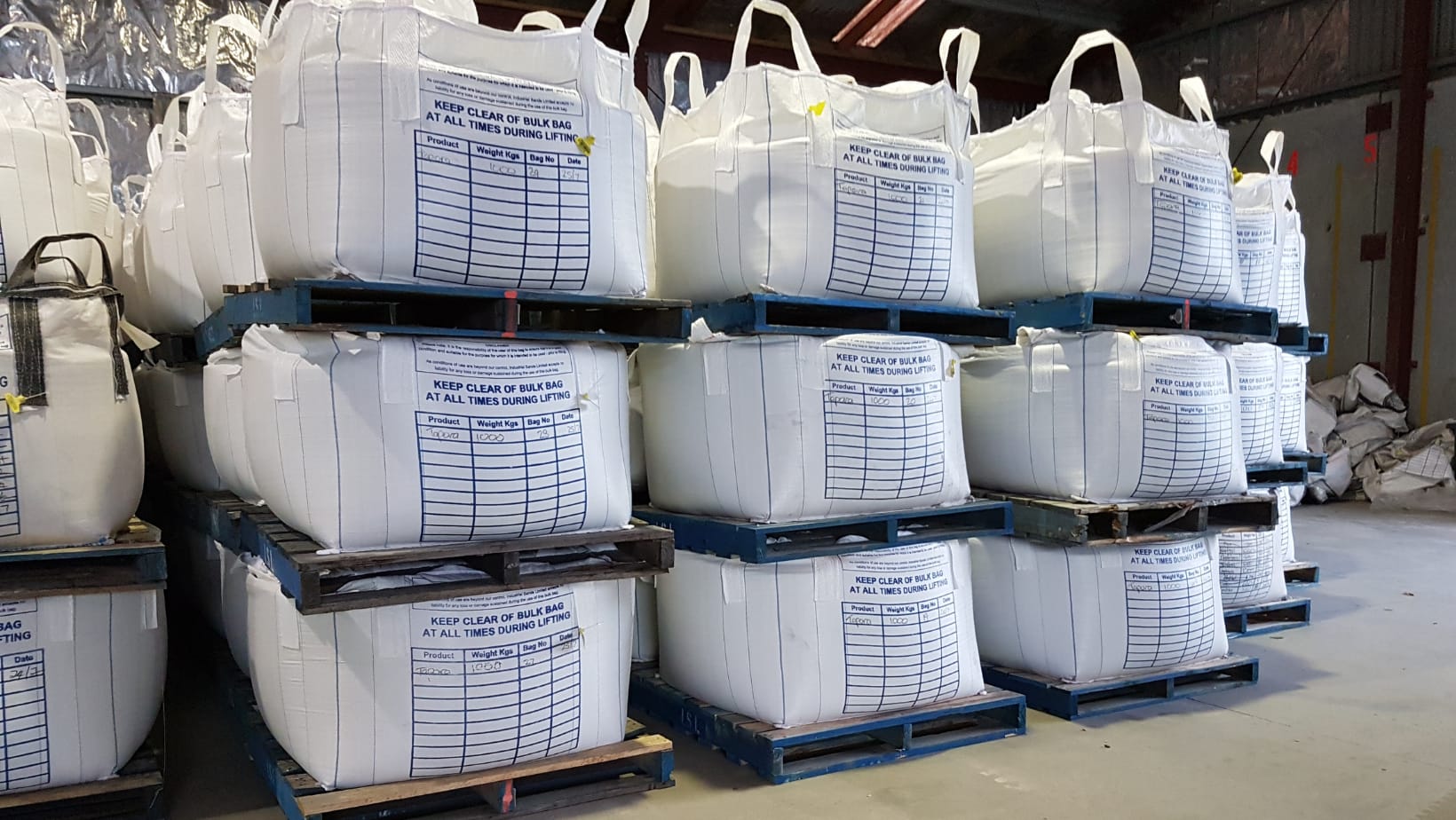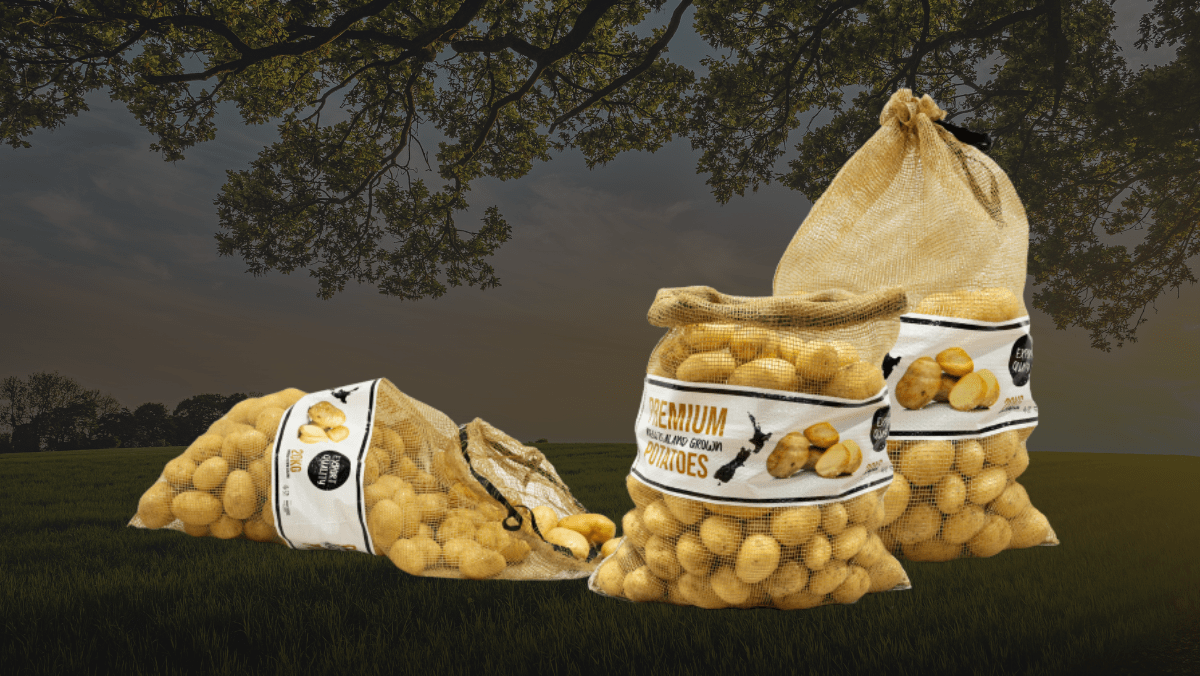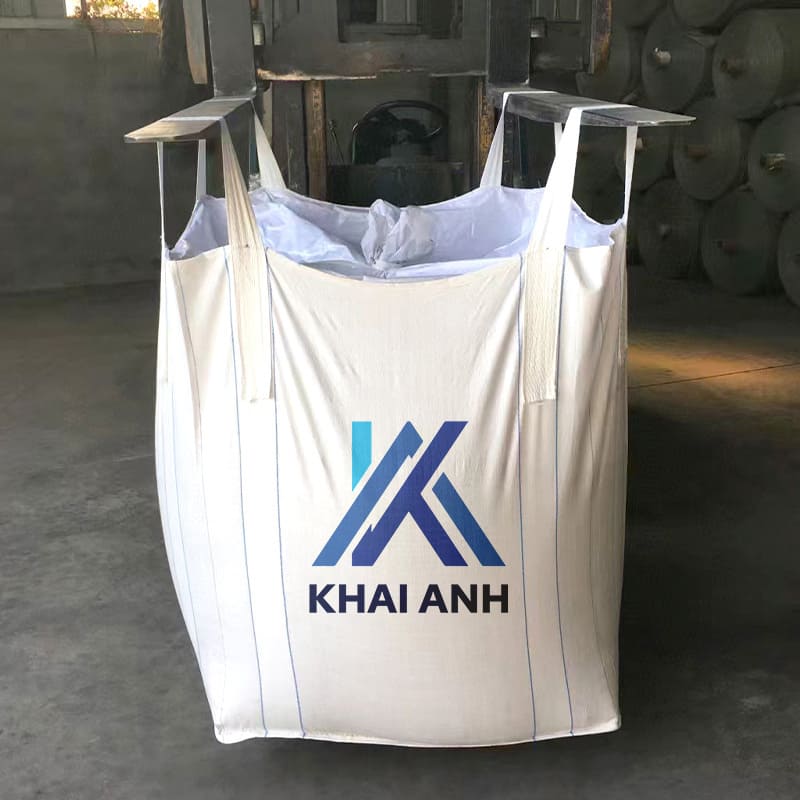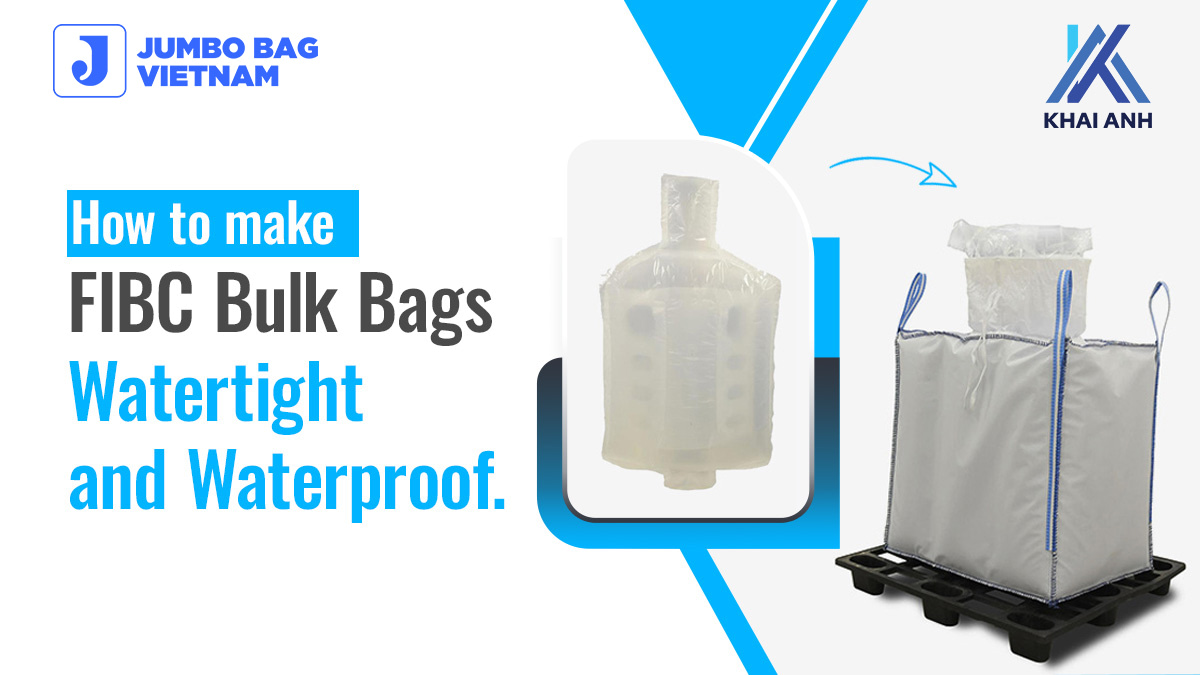At FIBC – Jumbo Bag Vietnam – Khai Anh, we take pride in crafting PP Jumbo Bags with exceptional specifications tailored to your needs. Our bags feature customizable sizes, high-quality polypropylene, a 5:1 safety factor, and printing on up to four sides. We offer a diverse range of extents, from undercoated and coated to airy, laminated, and layered options.
Key Features of PP Jumbo Bags:
- Lightweight Yet Powerful: Our bags are designed to be lightweight and robust, making them ideal for transporting both dry and liquid bulk materials.
- Global Export: FIBC – Jumbo Bag Vietnam – Khai Anh exports PP Jumbo Bags to various countries, including the United States, United Kingdom, United Arab Emirates, Canada, and Australia.
Environmentally Friendly PP Jumbo Bags:
FIBC – Jumbo Bag Vietnam – Khai Anh is committed to environmental sustainability. Our PP Jumbo Bags, also known as Flexible Intermediate Bulk Containers (FIBC), offer efficient packaging solutions while reducing environmental impact.
- Recyclability: Our bags are recyclable, contributing to reduced landfill burden and aligning with modern environmental concerns.
- Efficient Handling and Advertisement: Equipped with integral lifting loops, our bags streamline transportation, and their large surface area serves as a walking advertisement for your brand.
- Versatile and Practical: PP Jumbo Bags are adaptable across various industries, suitable for transporting powdered goods, foodstuffs, granulated materials, minerals, cement, pharmaceuticals, chemicals, and fertilizers.
Types of PP Jumbo Bags:
- Single Loop PP Jumbo Bags: Ideal for bulk materials like cement or fertilizers, with or without a PE inner lining.
- Two Loop Jumbo Bags: Versatile for various contents, including chemicals, fertilizers, minerals, and food grains.
- Loop Jumbo Bags: Excellent for transporting goods such as chemical powders, food grains, and fertilizers.
- Builder Jumbo Bags / Q Bags: High-quality polypropylene bags suitable for construction materials.
- UN Certified Jumbo Bags: Designed for carrying heavy and volatile substances, ensuring durability and safety.
- Ventilated FIBC Bags: Breathable and moisture-resistant, perfect for transporting perishable items like vegetables.
- Dissipative FIBC Bags: Manufactured from antistatic fabric, suitable for transporting flammable powders.
Significance of Selecting the Right Jumbo Bags:
Choosing suitable PP Jumbo Bags is crucial for efficient and safe material handling. The bags are commonly used for transporting powdered substances, and the right choice prevents static electricity generation and ensures safety, especially for shipping flammable goods.
Market Trends for PP Jumbo Bags:
- Rapid Expansion of Supply Chains: FIBC Bags ensure consistency and quality in supply chains, especially for hazardous substances.
- Increased Environmental Awareness: PP Jumbo Bags offer eco-friendly solutions, reducing environmental impact and packaging costs.
- Surge in Industrial Enterprises and Infrastructure Projects: Resilient and reliable, these bags support the transportation of goods for infrastructure projects.
Features of PP Jumbo Bags:
- Protection Against External Factors: Shields contents from UV rays, moisture, pests, and humidity.
- No Need for Pallets or Secondary Packaging: Eliminates the need for pallets, reducing overall costs.
- Optimal Space Utilization: Efficient use of storage and transportation space, minimizing wasted space.
- Enhanced Moisture Protection: Liners can be included for an additional layer of defense against moisture.
- Strength and Flexibility: Robust, flexible, and durable, ensuring the safe transportation of heavy materials.
- Customizable Finishes: Available with coated or uncoated finishes, offering options to suit specific packaging requirements.
- Convenient Labeling: Document pouches integrated for easy and organized labeling.
- Versatile Handling: Facilitates transport and movement of heavy materials with various options for filling, discharging, hauling, and lifting.
- Multiple Loading and Unloading Options: Offers various top and bottom options for hassle-free loading and unloading.
- Anti-Static Properties: Designed with anti-static properties for the safe packaging of materials sensitive to static electricity.
- Safe for Hazardous Materials: Suitable for packaging and transporting hazardous chemicals as specified by the UN.
- Space-Efficient Delivery: Can be conveniently folded flat and baled, optimizing delivery logistics to customers.
- Leakage-Free Transport: Ideal for granules, small particles, and powders, preventing the risk of leakage during transportation.
- Smooth Filling and Emptying: Flaps, skirts, valves, and ropes facilitate easy and smooth filling and emptying processes.
- Innovative Design for Higher Capacity: Designed to accommodate more material than their actual dimensions suggest.
Advantages of PP Jumbo Bags:
- Eco-Friendly: Environmentally friendly and fully recyclable, minimizing waste.
- Cost-Effective: A cost-effective alternative, saving expenses for manufacturers.
- High Weight-Bearing Capacity: Can carry significantly more weight than their own, suitable for bulk manufacturing industries.
- Promotional Opportunity: Due to their size, they serve as advertising platforms, aiding in branding efforts.
- Space-Efficient Storage: Occupies less space in warehouses, optimizing storage efficiency.
- Waste Reduction: Contributes to the reduction of waste flows in the packaging process.
- Enhanced Logistics: Improves overall logistics by streamlining packaging and transportation.
- Versatile Substitution: An effective and economical substitute for traditional packaging materials.
- User-Friendly: Easy to handle during transportation and in warehouses, user-friendly in various settings.
- Durable and Long-Lasting: Robust and long-lasting, ensuring the safe transportation of materials over extended periods.
Applications of PP Jumbo Bags:
PP Jumbo bags find diverse applications across various industries, including chemical, steel, fertilizer, mineral, mining, food, petroleum, construction, plastic, cement, salt, pigments, oil, natural gas, pharmaceutical, resin, nut, paper, and industries requiring fine powders.
Specifications of PP Jumbo Bags by FIBC – Jumbo Bag Vietnam – Khai Anh:
- Safe Working Load (SWL): Ranging from 500 to 2000 kg.
- Size: Customizable as per requirements.
- Safety Factor: 5:1 or as per specific needs.
- Material: UV-stabilized Polypropylene.
- Thickness: Ranging from 40 to 200 Micron.
- Certification: All bags are UN certified, ensuring safety and quality.
- Printing: Up to 4 Colors and on Up to 4 Sides.
- Liners: Available in Normal, Bottle Shaped, Glued, or Sewn variations.
- Color: Customizable in various colors based on requirements.
- Dimensions: Standard sizes like 85 cm x 85 cm x 11 cm, 90 cm x 90 cm x 90 cm, 90 cm x 90 cm x 125 cm, and more, as needed.
- Height: Adjustable from 75 cm to 200 cm or as per specific requirements.
- Fabric: Options include Coated, Uncoated, Laminated, Unlaminated, Ventilated, or customized as needed.
FIBC – Jumbo Bag Vietnam – Khai Anh offers a range of sizes, shapes, styles, and colors of FIBC bags to meet unique specifications. Contact us for your packaging needs at
